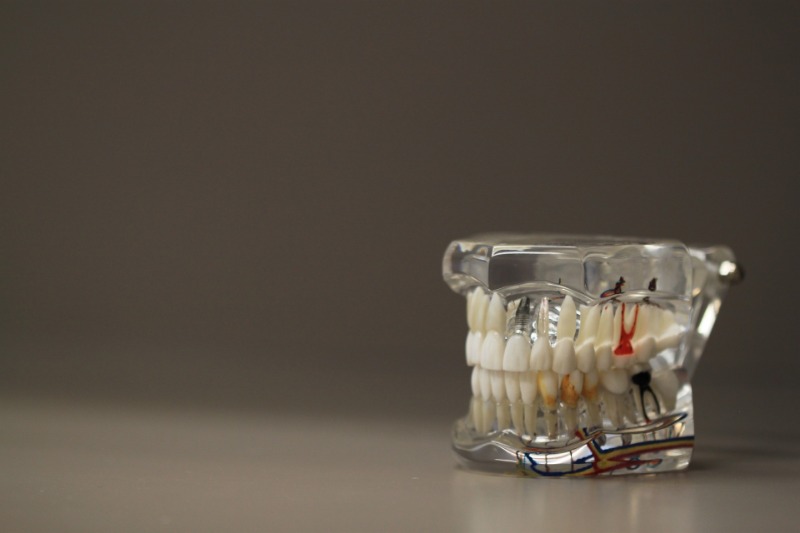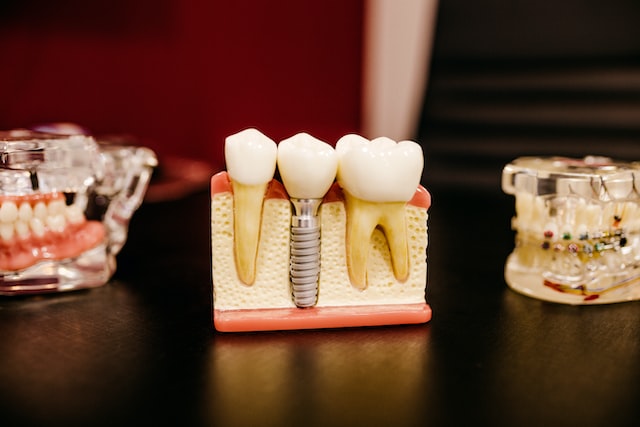Should I Have a Root Canal or a Dental Implant?

If you experience the unexpected, deep pain of pulp contamination, it is obvious that you will need a root canal. While it is true that pulp contaminations do necessitate quick dental treatment to eliminate the infection, a root canal is no longer the only choice. To put it in simple words, dental implants are another treatment that can be practiced when pulp contamination is present.
Nevertheless, root canals and dental implants are fair to one another. Even though they can both ease a pulp infection, their differences will support you to regulate which treatment is best suited for you. If a tooth becomes inflamed, there are two possible treatment possibilities.
Root Canal
A root canal holds your natural tooth while eliminating the infection from the inside. This is achieved by making a small access hole in the top or side of your tooth. Then, a variety of root canal files are used to eradicate the decomposed tissue from the pulp chamber and root canals.
Once the chamber and root canals are bare, they will be cleaned to avert forthcoming contamination. The inside of the tooth will be filled with gutta-percha. Gutta-percha, is a rubber-like material, to offer stability. The access hole will be filled with composite resin, then the whole tooth will be reinstated using a dental crown.
Besides the benefit of preserving the natural tooth, root canals also provide a quick and affordable way to eliminate a pulp infection when compared to dental implants. Generally, the whole process from a root canal to having a dental crown placed needs about 2-3 dental appointments. The cost is habitually less than that of dental implant placement as well.
Dental Implants

Dental implants are used to replace the infected tooth entirely. This means that the infected tooth will be taken out and then a dental implant will be positioned into the jawbone under the empty socket. A metal post used as a connector will then be screwed into the implant and then used to hold a dental crown. Once in place, the implant will fuse with the neighboring bone to perform as an artificial tooth root for an implant-supported crown. Even though it is not a natural tooth, an implant-supported crown looks like natural teeth, while also continuing a similar function.
Even though dental implants necessitate a minor oral surgery and have a lengthier retrieval period. They still offer many benefits. For starters, substituting a diseased tooth with a dental implant wholly eradicates the chances of the tooth becoming infected again. This means that there will be no need for a second root canal or other endodontic procedures. To put it in simple words, dental implants have an almost assured accomplishment rate, particularly compared to root canals which have been known to fail. Lastly, the outcomes related to dental implant placement will last longer than those from having a root canal.
Burbank Root Canal or a Burbank Dental Implant
Overall, both root canals and dental implants are acceptable options for dealing with a tooth affected by pulp contamination. Each process does offer its method, and one approach may be better than the other one, depending on the condition. Discussing these choices with our dentist can give you insight as to whether one treatment is right for you in comparison to the other.
MyDentistBurbank for Root Canal and Dental Implant
Seek a professional discussion with Dr. Sahakyan our Dentist in Burbank to help you choose if you need to save your tooth or replace it. Call us at 8185782332.


